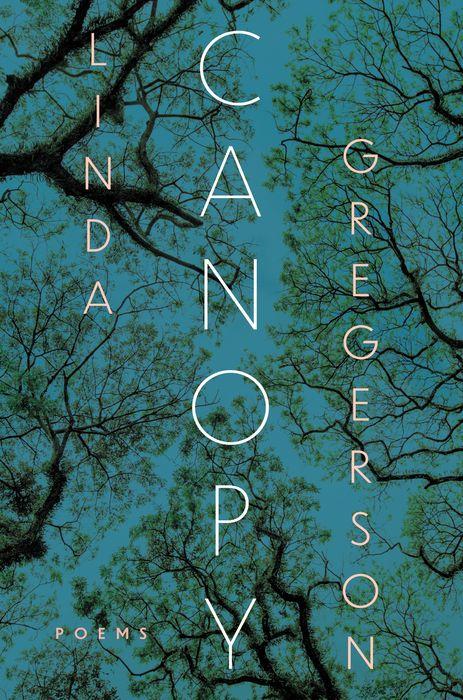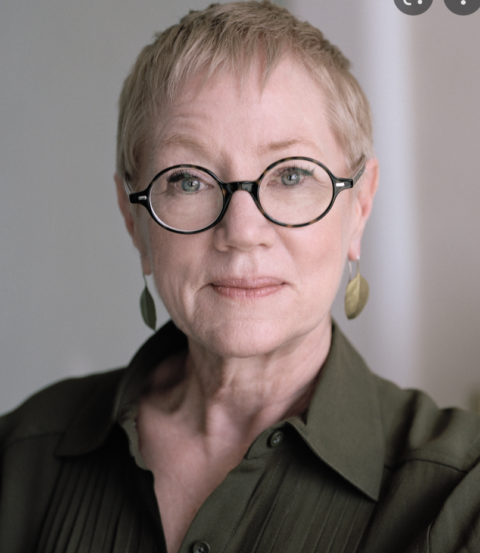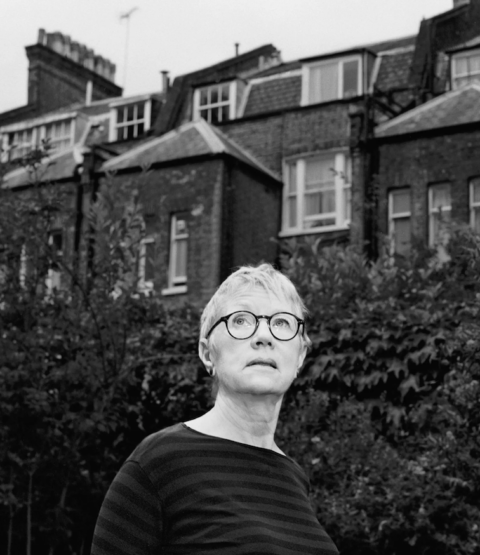In the eleventh book of John Milton’s epic poem, Paradise Lost — not long after the blind speaker narrates, at last, that “first disobedience” of which the poem’s opening line sang — the archangel Michael visits a repentant Adam in order to show him visions of “future days.” But before Adam can see these postlapsarian sights — which, as Michael tells him, are comprised of “good with bad” — the angel does something rather unexpected:
… but to nobler sights
Michael from Adam’s eyes the film removed
Which that false fruit that promised clearer sight
Had bred; then purged with euphrasy and rue
The visual nerve, for he had much to see;
And from the Well of Life three drops instilled.
In the hundreds of lines that follow this “purg[ing],” Michael takes Adam through a kind of biblical world history — which, despite its promise of Christic redemption, depicts a world that, for the time being at least, remains bound to cycles of tyranny and violence.
But a question remains: why does Adam — already fallen — need these “three drops” from the Well of Life in order to see visions of such ambivalence? Put differently — and in another key — we might ask: what kind of looking is required if we are to see accurately that beguiling blend of devastation and grace that seems, each day, to hem us in?
 Although such a question might prove to be, in the end, unanswerable, an answer — or, at least, the start of one — arrives in the pages of Canopy, a new collection of poetry from Linda Gregerson. Herself a renowned scholar of such early modern poets as, of course, John Milton, Gregerson offers us, with this, her seventh collection, a series of poems that, like Milton’s Michael, seek to “purge” our eyes to “clearer sight” — even if that sight presents us with visions that, in our weaker moments, we’d rather ignore.
Although such a question might prove to be, in the end, unanswerable, an answer — or, at least, the start of one — arrives in the pages of Canopy, a new collection of poetry from Linda Gregerson. Herself a renowned scholar of such early modern poets as, of course, John Milton, Gregerson offers us, with this, her seventh collection, a series of poems that, like Milton’s Michael, seek to “purge” our eyes to “clearer sight” — even if that sight presents us with visions that, in our weaker moments, we’d rather ignore.
In the collection’s memorable first poem, “Deciduous,” Gregerson transcribes a conversation between the changing months of the year — from November through April — and a set of maple trees. “Speak plainly, said November to the maples, say / what you mean now,” read the opening lines. As the poem moves to a close, April takes over —and, in doing so, speaks in a voice that comes to sound, increasingly, like our own:
The child who learned perspective from the
stand of you, nearer and nearer,
knowing you were permanent, is counting
the years to extinction now. Teach her
to teach us the disciplines of do-less-harm. We’re
capable of learning. We’ve glimpsed
the bright intelligence that courses through the body
that contains us. De +
cidere, say the maples, has another face.
It also means decide.
In this final turn — after the poem has charted both the inevitability of human-wrought “extinction” and the possibility of that medieval portmanteau, “do-less-harm” — the maples speak from a position of real authority, as if propelled by “the bright intelligence” that April can only “glimpse.” Wielding etymology as a mode of moral (and ecological) challenge, these lines make a demand not only of the seasons but also of the reader. “It also means decide,” the maples inform us in a meter as precise as the diction itself.
The reality of this impending ecological “decision” — or, perhaps, the reality of having always already refused to make it — marks a number of the poems in Canopy. In the final section of a poem entitled “The Long Run,” the poem’s speaker asks a question that chills in its directness:
… Is it something peculiar to us,
do you think, this science-will-fix-it, somebody-somewhere-
will-figure-out-the-cleanup way of burning through our one
shared life.
That this question lacks a question mark is intentional — or, put better, its absence implies the affirmation that is the question’s answer. It is indeed, the poem assures, “something peculiar to us.” But the poem continues — and as it does so, its lyric eye drifts to other, more specific losses. “Three tons lost // per acre per year because we like our groceries cheap,” explains the speaker about the rapid loss of topsoil in Iowa.
As is so often the case in Gregerson’s poetry, the language of these lines — their precise grammar, their perfect meter (“because we like our groceries cheap”) — is inseparable from their moral claim. As if to ward off a rage or fear that, if yielded to, would threaten the intelligibility of the poem itself, Gregerson’s prosody steps in, maintaining order in the face of chaos.
“The Long Run” ends as follows:
In the long run the fern and the
nautilus speak a single fractal language. My father loved
the ginkgos on the statehouse lawn, the former statehouse,
Greek revival, columns and cupola painted to look like stone.
And no more native here than we are, or the ginkgo, but he
loved the trees. The species coexisted with the dinosaurs.
A gingko in Hiroshima survived the atom bomb. It must
have been unforgivable, the thing I said that made him cut
their visit short. Forgetting hasn’t fixed it.
In these lines, as throughout Canopy, pain refuses to stay put; it refuses, that is, to remain affixed to a single sphere or sector of “our one shared life” (though one is tempted to call it something other than pain: something larger, more culpable — sin perhaps …). Instead, it — call it pain for now — moves, fluidly, across borders: from ecological deep time (“a single fractal language”) through the horrors of Hiroshima until it lands, finally, in a moment of small, familial pain. “Forgetting hasn’t fixed it,” admits the speaker.
 In the hands (or voice) of another poet, this kind of close attention to suffering might run the risk of mutating into self-righteousness — or worse, whatever we mean by “preachiness.” But Gregerson’s lyric-“I” manages, constantly, to walk the careful tightrope between moral authority and metanoic self-questioning. Oftentimes, in these poems, the lyric epicenter dovetails exactly with a moment at which the speaker grows less certain of herself. As in “Melting Equestrian,” when she considers the 18th-century Battle of Culloden: “I have a hunch, despite // what they tell me on Wiki, that the tactic at Culloden / wasn’t new at all.” By the poem’s final lines, this “hunch” has ballooned into a full recognition of the speaker’s poetic limits: “For every harm // I manage to hold in mind I let a hundred slip.”
In the hands (or voice) of another poet, this kind of close attention to suffering might run the risk of mutating into self-righteousness — or worse, whatever we mean by “preachiness.” But Gregerson’s lyric-“I” manages, constantly, to walk the careful tightrope between moral authority and metanoic self-questioning. Oftentimes, in these poems, the lyric epicenter dovetails exactly with a moment at which the speaker grows less certain of herself. As in “Melting Equestrian,” when she considers the 18th-century Battle of Culloden: “I have a hunch, despite // what they tell me on Wiki, that the tactic at Culloden / wasn’t new at all.” By the poem’s final lines, this “hunch” has ballooned into a full recognition of the speaker’s poetic limits: “For every harm // I manage to hold in mind I let a hundred slip.”
Although seemingly small, these moments of recognition — of a certain epistemic humility — serve to ground the collection on both lyric and moral planes. Because Gregerson insists on documenting unsparingly the various harms that we do to both each other and “our one shared life,” she refuses, on those same grounds, to leave herself outside of the frame of reference. (In the words of St. Paul: “of whom I am the chief.”)
In this vein, a poem entitled “Saint Sorry” recounts various acts of cruelty that the speaker has inflicted on her mother. Then, as if looking at the reader directly, she says:
If these are the screens imagine the things
I did that I won’t talk about
That grocery cart abandoned in the parking lot?
When you see me pushing it back to the store
think penance in a faithless age.
Here we are brought, as readers, to the very edge of what can or should be said. As if in apophatic invocation of her own failings, Gregerson invites us — bravely, I think — to assume the worst of her. But here we must be cautious: for any careful reader of Canopy will recognize the danger of casting even the first pebble.
But not all of Canopy proceeds at such an Augustinian pace. Like the passage from Milton with which I opened, the visions provided by these poems are ambivalent in content — that is, they give glimpses of not only sorrow but also joy, hope, and some of the most tender expressions of parental love that one will find in contemporary poetry. In this last vein, Gregerson includes a pair of poems — one, presumably, for each of her daughters — both entitled “Love Poem” and both, too, beginning with identical lines:
Once, my very best darling, the sea
and the land were all one mass
and the light was confused and hadn’t found
a place to rest.
In the phrase that follows these opening lines (which echo both the Creation myth from Genesis and Milton’s “Invocation to Light” in Paradise Lost’s third book), the respective poems wrench into daughterly focus: “And Emma, love” the first one proceeds; “And, Megan, love,” the second picks up. In both, Gregerson addresses her daughter with specific reference to the loss of her own sister. In both poems, too, this opening scene of Creation is intelligible only in light of this younger sister — whose eyes, we are told “were not yet there to hold it all / together.”
In the second poem, the scene shifts, quickly, to a frantic description of “the twilit room where newborns come to die / or live”—which, we find, is where this specific daughter, Megan, spent her first young hours. Gregerson recalls
… when no one could tell us if you
would be one of the lucky ones able to
walk and speak and only this, the one
unstinted blessing fate had given us to
give you was a sister in whose eyes you were
the sun and moon, it meant we all no matter
what befell us all
had solid ground. Pity the part
we think we do on purpose.
 In a collection that, like Milton’s angel, spreads out before us so many visions of violence, grief, and suffering, these lines — “Pity the part / we think we do on purpose” — hold out a hand of both comfort and hope. Indeed, as much as anywhere else in Canopy, they seem to “purge with euphrasy and rue” our fallen, hopeless eyes.
In a collection that, like Milton’s angel, spreads out before us so many visions of violence, grief, and suffering, these lines — “Pity the part / we think we do on purpose” — hold out a hand of both comfort and hope. Indeed, as much as anywhere else in Canopy, they seem to “purge with euphrasy and rue” our fallen, hopeless eyes.
Despite our constant tendency to harm — both “on purpose” and through carelessness — these lines offer us a moment in which our own best efforts don’t, for once, lead anyone to harm; instead, they manage — despite us — to bring about the unqualified good that, in its purest distillation, love is.
This recognition — of moments in which love appears as an unwarranted blessing — is, I think, what motivates the book’s final poem, “When Nothing But Tree.” A meditation, in part, on Holbein’s The Body of the Dead Christ in the Tomb, the poem concludes in the same way as does Canopy’s opening lyric: in the voice of a tree. After considering the eye of the corpse that Holbein used as a model, the poem’s final lines read:
… Never
elsewhere, says the limewood, never
blind. Behold
the nearer case for mystery. I’m here to praise.
In these, Canopy’s closing movements, the line between the voice of our familiar lyric-“I” and the voice of the limewood — which serves as the material for the painting — begin to blur. What begins, ostensibly, as the limewood’s oblique declaration about Christ’s “presence” — “Never / elsewhere … never / blind” — ends, it seems, beneath the painting itself.
Paradoxically, the “nearer case for mystery” may be, in fact, on the far side of Christ’s body — it may be, that is, the wood on which this “emphatically unrisen” Christ is, as the still-living Christ was, stretched out. Or, perhaps, these final lines are spoken, still, by the limewood. In which case “the nearer case” remains the figure depicted. Either way, the poem’s ambiguous speaker affirms, “I’m here to praise.”
[Published by HarperCollins on March 22, 2022, 96 pages, $25.99/$16.99 hardcover/paperback]